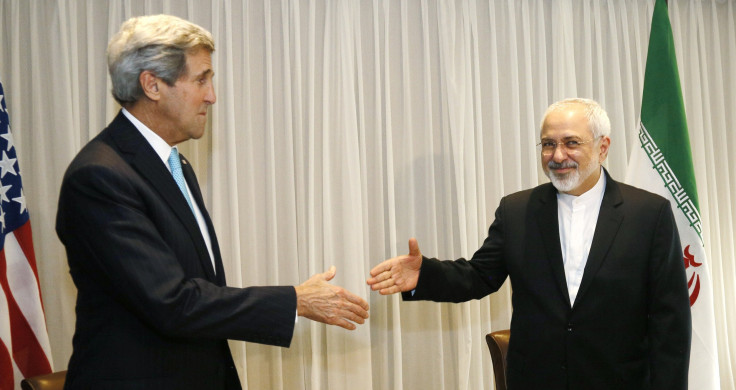In The Middle East, Iran’s Nuclear Power Is A Side Conversation

ISTANBUL -- In his speech before the U.S. Congress on Tuesday, Israeli Prime Minister Benjamin Netanyahu denounced Iran for embracing what he called “militant Islam,” pushing the escalation of its nuclear program with the intention of getting weapons to destroy Israel and further destabilizing the Middle East.
“Iran's founding document pledges death, tyranny and the pursuit of jihad,” Netanyahu declared Tuesday, arguing against any deal between Iran and the West. “And as states are collapsing across the Middle East, Iran is charging into the void to do just that.”
But Middle Eastern countries (Israel aside) are not worried about a nuclear Iran, at least not now, nor about whether it has the ability to destabilize the region. Analysts in Turkey, which borders Iran, say a nuclear deal is not worrisome. In fact, some researchers predict that trade between Turkey and Iran will hit an all-time high in 2016 with an increase in energy deals. And in cafes on main thoroughfares in downtown Istanbul, the political elite engages in discussions about domestic politics, or about foreign fighters traveling through their country to fight with the Islamic State group in Syria. Iran's nuclear power and its negotiations with the U.S. rarely come up.
Turkey, in many ways on the frontlines of fighting the Islamic State group, also known as ISIS or ISIL, is concerned about curtailing the number of foreign fighters crossing its border into Syria and about how it will pay for hosting the hundreds of thousands of Syrian refugees from the civil war. Iran’s strategy of fighting ISIS in Iraq and Syria, though it may not align with that of the U.S.-led coalition, helps Turkey reach those goals.
The global effort to take out ISIS has created, at least temporarily, unexpected allies -- and turned Shiite Iran into a de facto partner in the fight against Sunni extremism. While Netanyahu singled out Iran for intervening militarily in Syria and propping up dictator Bashar Assad, the Iranian regime is in fact intervening on the same side of the West in the fight against ISIS.
In Iraq, Iran has been funding Shiite paramilitary groups for many years, and has increased its cooperation with the Iraqi security forces since the rise of ISIS. Iranian commanders are often pictured in Iraq with Iraqi soldiers, training them for battle. Despite the key role Shiite militias play in the fight against ISIS in Iraq, U.S. senior officials have not publicly acknowledged Iran’s strong influence in the country. Today, that influence is directed at fighting a common enemy with the Americans, rather than fighting the Americans.
The U.S. has known of the Iranian role in Iraq for years. Under President George W. Bush, the government "revived charges that the Iranian leadership was involved in the killing of American soldiers in Iraq," Seymour Hersh wrote in a 2008 article in the New Yorker. Retired Adm. William Fallon told Hersh that during his time at the U.S. Central Command, which is responsible for operations in the Middle East, "Iranians were funding every entity inside Iraq. It was in their interest to get us out."
In Syria, Iran is funding Hezbollah militants from Lebanon to help Assad fight the Sunni rebels, which include ISIS and the al Qaeda-affiliated Jabhat al-Nusra, but also U.S.-backed rebel groups. While at one point taking out Assad from power was the main focus of the U.S. policy in Syria, that position has changed. President Barack Obama has said on multiple occasions that defeating ISIS in all its forms is now a top priority for the U.S.
Fighting ISIS is the priority as well for dozens of countries around the world that are now officially part of the U.S.-led coalition. The Middle Eastern countries, closest to the threat, are consumed with financing their fight against the Sunni militants and putting a stop to the flow of foreign fighters.
That's why Middle Eastern analysts here say the Iranian nuclear negotiations are a distant conversation.
But the lack of details about a possible deal between the U.S. and Iran limits their ability to see past the next few months. And the lack of intelligence by the U.N.'s International Atomic Energy Agency, which is monitoring Iran's nuclear sites, makes it even more difficult for anyone, including politicians in the U.S. and Netanyahu himself, to understand the full scope and capacity of the country's nuclear program.
Newly declassified CIA documents also show that the United States tried to mislead the atomic energy agency about Iran’s nuclear energy program through the provision of doctored evidence. The CIA secretly gave flawed designs for nuclear-weapons components to Iran’s IAEA mission in Austria about 15 years ago. Iran has accused the IAEA of basing its case against Tehran on forged documents provided by foreign intelligence agencies.
That legacy is now clouding the current nuclear negotiations.
"In one of the latest IAEA reports, it says Iran has not provided information that is acceptable to resolve the questions that they have asked. But that is not quite the answer," said Robert Kelley, the former IAEA director of nuclear inspections in Iraq. "Maybe Iran has provided all the information they have and the IAEA doesn’t understand it. Or maybe the IAEA might not have the expertise to be looking at these elements."
© Copyright IBTimes 2025. All rights reserved.





















